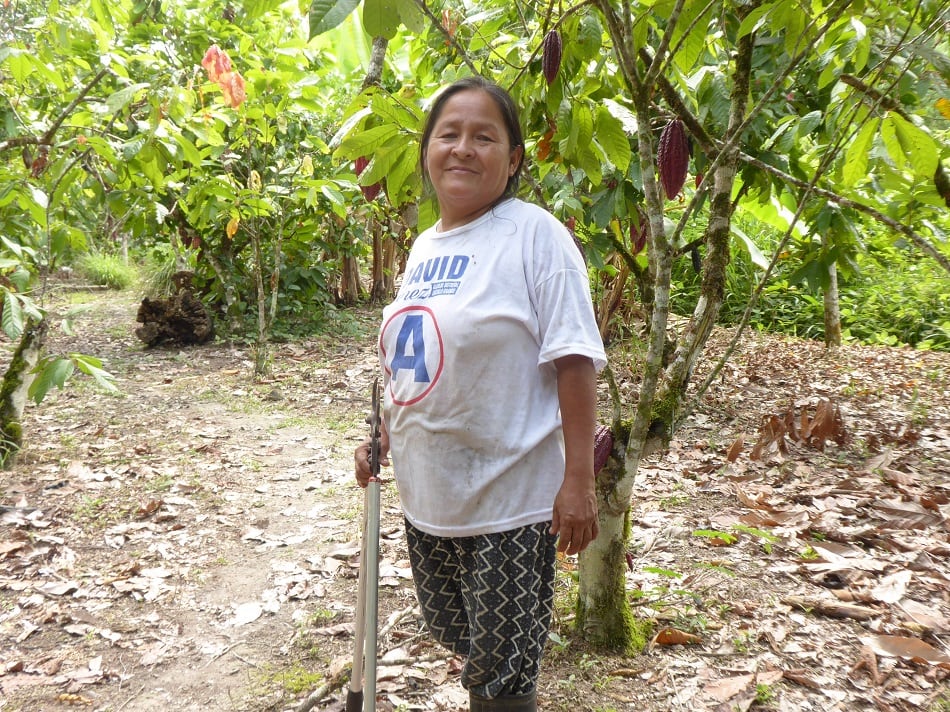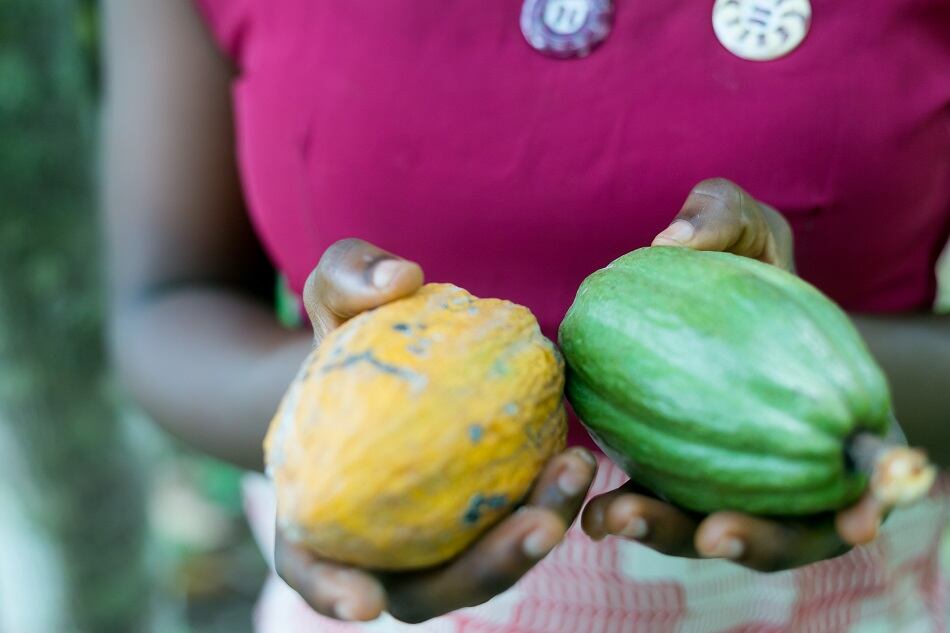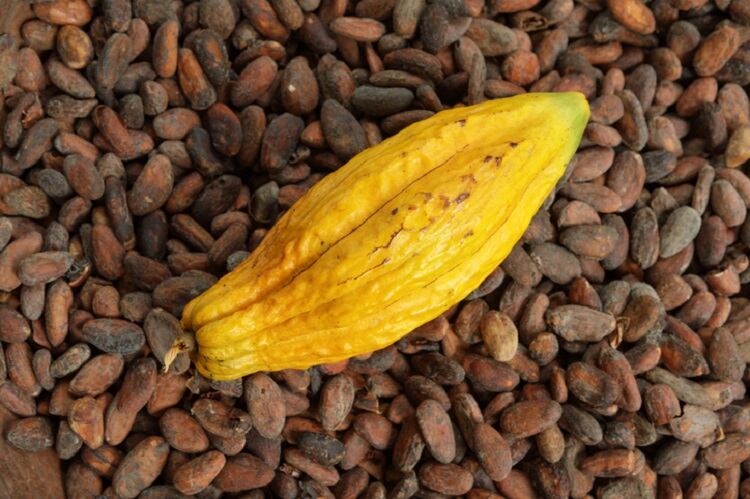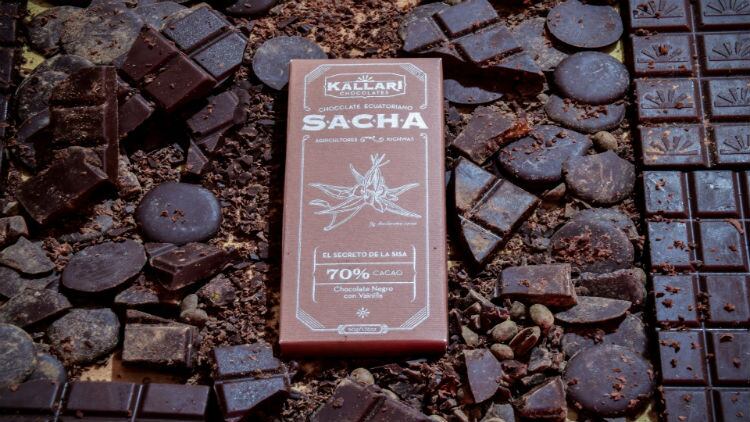Since 2017, TechnoServe’s MUJERES project has trained 90 women from the Bolsón Cuchara valley in basic agricultural techniques to increase productivity on their farms.
“The project is working with some of the most vulnerable cacao farmers in Peru – women who have largely been unable to participate in any other training programs,” said Victor Ganoza, TechnoServe country director for Peru. “In these situations, simply adopting basic farming practices can make a real difference.”
Average yields grew 185%, from 138 kg to 393 kg of cacao per hectare to produce a total 46,000 kg in 2019. Although still well below the 1,100 kg per hectare needed for a sustainable farm, the women now earn significantly higher incomes and see themselves differently.
Cacao: a licit economy
Between 1980 and the early 2000s, this remote valley of Bolsón Cuchara along the Huallaga River in the Peruvian Amazon was at the center of the global drug trade, immersed in an illicit economy of coca cultivation and the accompanying violence.
In the last decade, a government program and international donors have helped local smallholder farmers transition out of coca – used for cocaine - and into alternative livelihoods like cacao – used for chocolate.
“Coca production has fallen 90% over the past decade, and the region is peaceful once again,” TechnoServe says.
"We weren't really farmers before, we were just gathering the cacao. Now we're cacao farmers," said Irma Ruíz Condor, who cultivates two acres of cacao and banana plants in the community of Los Cedros. Her harvest has grown from 150 kg to 800 kg a year.

Becoming cacao farmers
Participants in the program learn how to properly select and graft plants, prune, produce and use fertilizer, control pests and crop diseases, and harvest and handle cacao beans post-harvest.
One of the most successful practices is TAPS, a synchronized pruning and fertilization technique. Training includes how to apply liquid fertilizer directly to the root system of the cacao plant with special injector backpacks.
“That makes it far easier for the women to carry out their work and helps them to properly fertilize all of the trees on their plot, which is something they had not done before,” Ganoza explained.
Looking ahead, TechnoServe will help farmers improve the quantity and quality of their crops by planting new trees and grafting high-quality genetic materials onto existing plants.
A model for entrepreneurial women
To reach female heads of households left behind by other approaches, TechnoServe tailored its training methodology. It provides monthly workshops, field day events, childcare and transportation, as well as farm visits by program staff.
The curriculum also includes a gender component to empower women as farmers, small business owners and leaders in their community.
Estela Sacramento from the hamlet of La Curva grew her harvest from 600 kg in 2011 to 1,400 kg in 2019. She now sells her own chocolates and heads the Inka Cuchara cooperative.
“I want my farm to be a model for other entrepreneurial women, of how we can advance as women, as mothers. Nothing is impossible,” she said.
The MUJERES women currently sell their cacao through cooperatives and intermediaries, but TechnoServe is looking for a buyer to expand to the global chocolate market.



